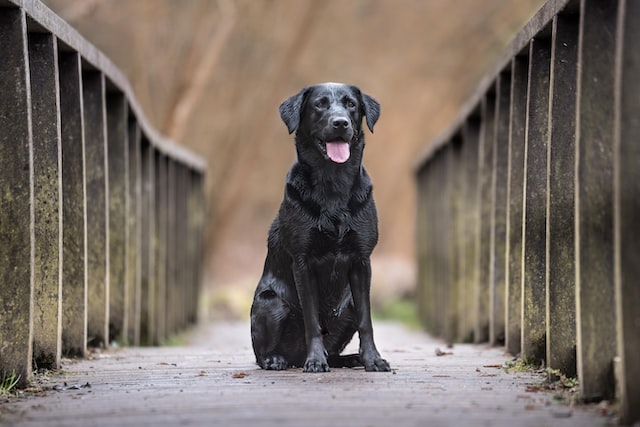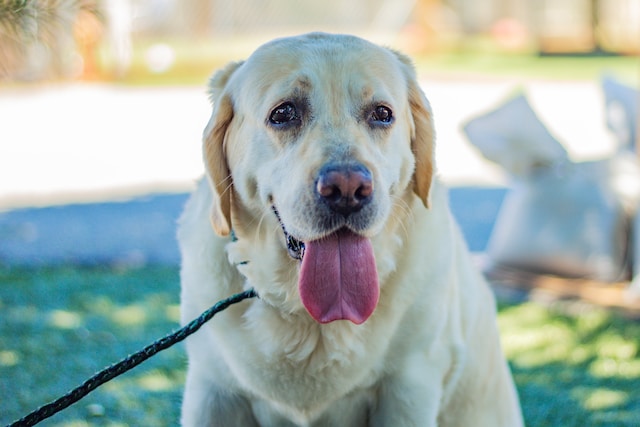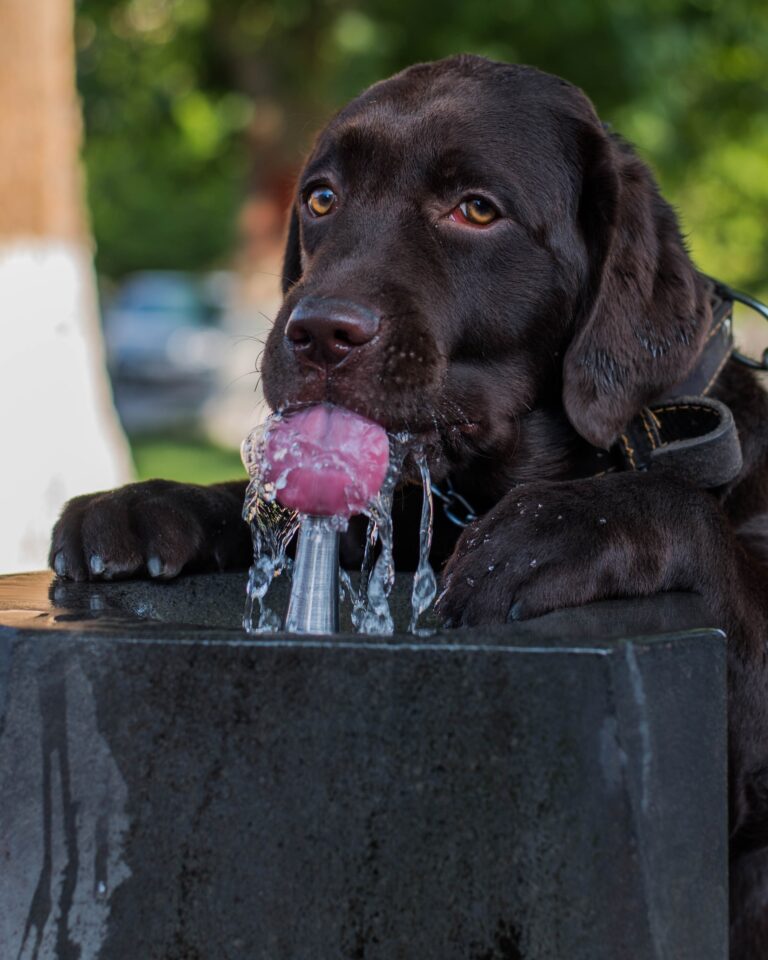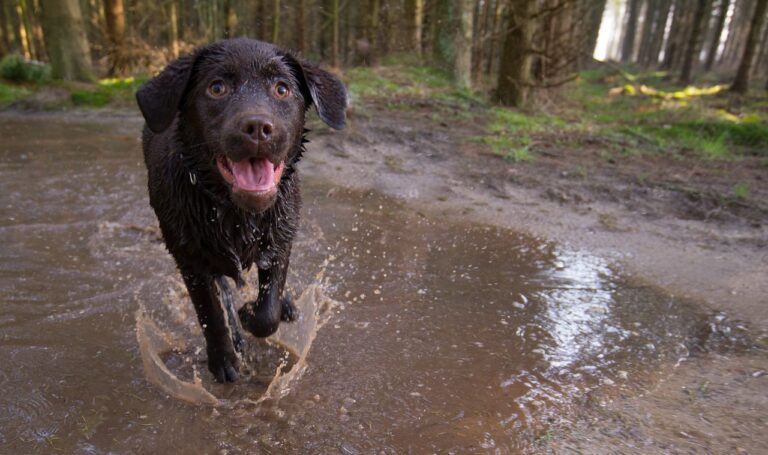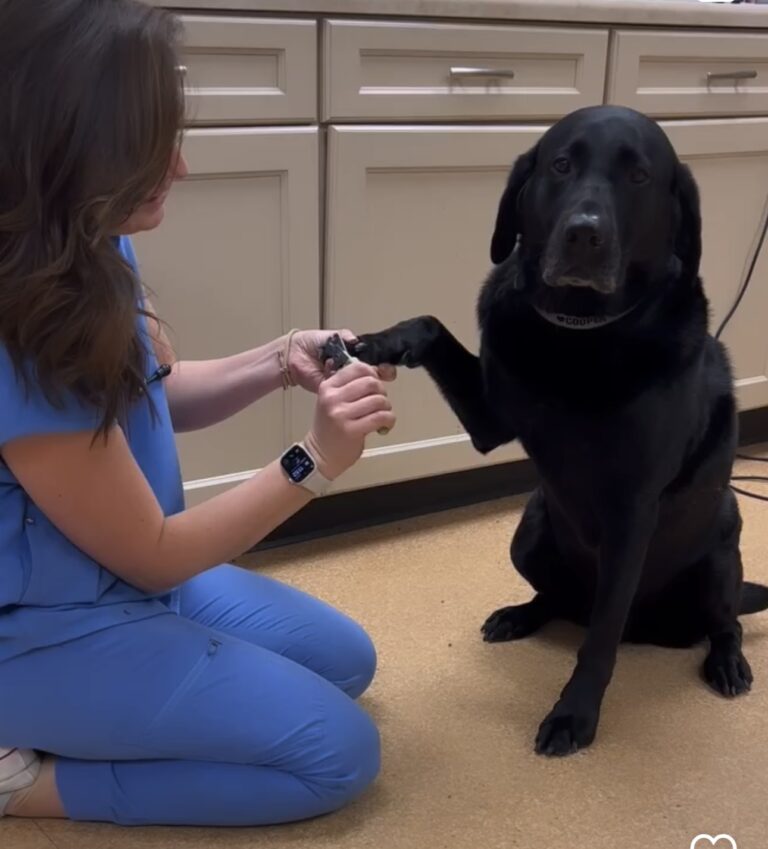Understanding and Managing Excessive Panting in Labradors
Labradors are known for their sweet and friendly demeanor, but they also make great working dogs. One of the most common occurrences in Labradors is excessive panting, and there are many possible reasons for this behavior. And in this guide, we’ll discuss the main reasons for this problem and how to manage it. So without further ado, let’s dive in!
How To Know If Panting Is Normal Or A Sign Of Emergency?
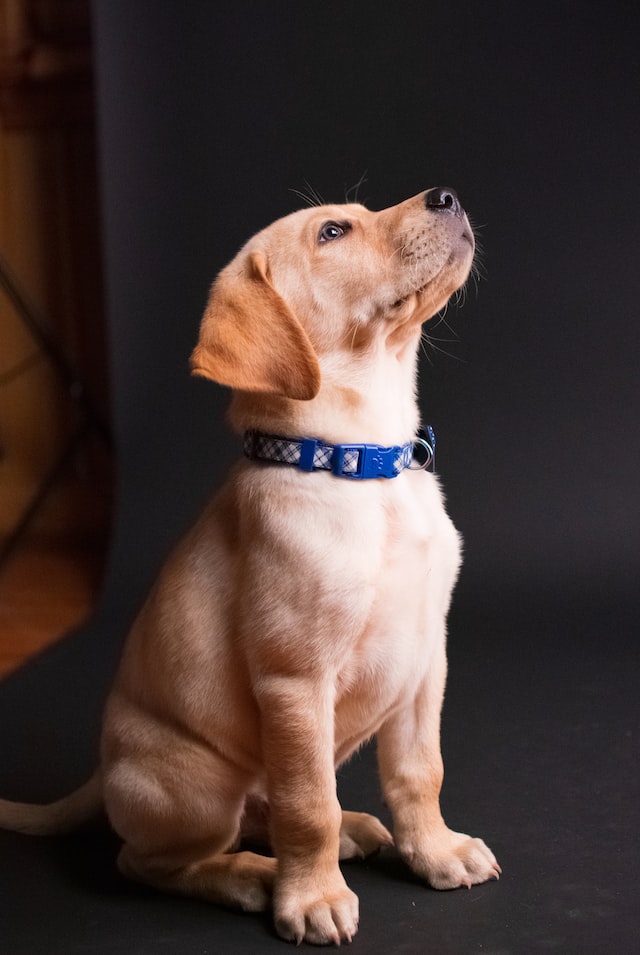
Labradors are known for their heavy panting, but if your dog’s panting seems excessive or unusual, it could mean an emergency or underlying medical condition.
If you notice that your Labrador is panting and are concerned about it, there are several things to consider. If the dog is relaxed and sitting or lying down, heavy breathing through its mouth is normal. If the dog is standing up, however, its breathing should not be labored or rapid.
If there’s something wrong with your Labrador’s breathing pattern after a slight movement, there could be a problem with its health. And knowing the possible reasons for this will help you quickly determine how to address it.
Reasons Why Labradors Are Panting
Despite their popularity, Labrador retrievers are not perfect. Like all dogs, they can get sick and have health issues. They also pant for various reasons:
🟦 Temperature
If it’s summer, your Labrador may pant when he’s hot. This can happen even if it doesn’t seem like the air is very warm. The ground absorbs the sun’s heat, which then heats up the air above it. Even when you don’t feel hot, your dog’s paws could be burning on a hot day!
If winter has come around again and all that snow has melted away into puddles, your Lab will probably be cool enough without having to worry about his paws getting too cold while he plays outside.
🟦 Physical Activity
Labradors are known to pant often, as they are working dogs. If your dog is panting but seems otherwise okay, don’t worry about it too much. You’re Lab might just have a tiring day due to massive physical activity!
🟦 Anxiety or Stress
When your Lab starts to pant, it may be a sign that he’s feeling stressed or anxious. Dogs can get stressed by loud noises, unfamiliar people, or other dogs. Panting is one way they regulate their body temperature when they’re feeling nervous.
🟦 Hyperventilation
If your dog is breathing rapidly and has an elevated heart rate, he may be experiencing hyperventilation. This reaction happens when your pet feels threatened or scared, or if he’s excited (for example, when greeting you after work). If this becomes an issue for your pet, talk with your vet about how best to manage his anxiety levels.
🟦 Fear or Excitement
Your dog may pant when he sees you or another person because he is excited to see you. Labradors are very social dogs, so they may be excited to see people! And it’s possible that your Lab is panting because he wants some exercise or just wants to have some fun!
If your Lab is panting when there’s no reason for him to be excited or hot, then there might be something wrong with him physically or emotionally. If this happens regularly (more than once a week), take him in for an exam by his veterinarian right away.
You can also click here to know other reasons for its hyperactivity.
Medical Conditions That Are Associated With Excessive Panting
It’s so hard to see your Lab panting. That can be a sign of many things, from stress to heat stroke. But it can also be a symptom of a hidden illness that could be life-threatening for your pooch. Here are the possible medical conditions that can cause excessive panting.
🟦 Diabetes
Among the symptoms of diabetes in Labradors is excessive panting because of several factors. Diabetes can lead to dehydration and an increase in body temperature, which can cause the dog to pant more in an attempt to cool down. Additionally, diabetes can damage the nerves in the respiratory system, making it harder for the dog to breathe.
🟦 Hyperthyroidism
In dogs, hyperthyroidism can cause weight loss, increased appetite, and pant. The reason for this is that excessive production of thyroid hormones causes metabolic changes that result in an increase in body temperature, which requires constant cooling through panting. Additionally, heart and lung problems may also contribute to panting in affected dogs.
🟦 Kidney Disease
Labrador retrievers are prone to kidney disease, which can cause excessive panting. Other symptoms include an increased heart rate and abdominal girth, or the area around your dog’s midsection. If you notice your dog panting excessively, see your vet for a diagnosis and proper treatment.
🟦 Cushing’s Syndrome
Cushing’s Syndrome is a disease that causes Labradors to pant excessively. This happens because the disease increases the dog’s cortisol levels, which causes it to feel stressed out even when it is not. This can lead to panting as a way to cool down and regulate body temperature. Additionally, Cushing’s Syndrome can also cause increased thirst and urination, which may also contribute to panting as a way to regulate temperature.
3 Things To Check If Your Labrador Is Panting
Panting is a normal part of a Labrador’s behavior, but it can also be a sign that something’s wrong. Learn how to recognize the difference and what to do if it’s time for a trip to the vet!
✓ Check the weather.
If the temperature is too hot for you to stay outside for long periods of time then it’s probably too hot for your dog as well! If this is the case, bring him inside until it cools down some more before taking him back out again.
✓ Check your Labrador’s diet.
If your Labrador is panting, it’s important to check its diet. A Labrador that is eating too much or too fast may be overfed, which can lead to excessive panting. If you’re feeding your dog high-quality food, consider cutting back on the amount of food you give them. This prevents them from feeling full all the time that can make them pant more often. If this doesn’t help with their panting problem, try switching their diet altogether and see if that helps eliminate some of their symptoms.
✓ Check his activity level.
If your Labrador is panting, the last thing you should do is check his activity level. If he’s been resting or sleeping, then it’s possible that he just needs some time to cool down. More likely than not though, you’ll see him panting while playing or running around with his friends in the park. If this is the case, then it’s likely that overheating is causing him to breathe heavily.
If your dog seems like he might be suffering from heatstroke, take him indoors immediately and call a vet for help before administering any kind of treatment yourself.
Tips To Prevent Your Labrador From Panting Excessively
Panting is a normal activity in Labradors, but excessive panting can be a sign of overheating. This is especially true if the dog’s tongue is bright red or if it has a high fever. If your Labrador is panting excessively, there are some steps you can take to prevent this condition and keep your pet healthy and happy.
🟨 Always provide fresh water
The first thing you need to do is provide your Lab with fresh water. You can do this by making sure that there’s always an ample supply of clean drinking water in the house, and you should also keep a bowl outside for when the weather is nice.
It’s important that your Labrador has access to clean water at all times, even in winter! Don’t worry about them getting dehydrated or overheating when it’s cold outside. They’ll drink plenty on their own if given the opportunity.
🟨 Dress your Labrador appropriately
Keep the Lab’s ears and tail cool. This can be accomplished by a simple bandana, or you can opt for a more elaborate cooling vest. Then, protect the Lab’s skin from sunburn by applying sunscreen on hot days and giving your Lab a bath before heading out into the sun for extended periods of time (like when you go camping).
Lastly, use a coat to protect their skin if necessary, especially if you live in an area where there are cold winters or if they spend most of their time outside during warm weather months. This will also help keep them warm at night time because they won’t have as much insulation without it!
🟨 Provide shade for your Lab
If you’re out in the heat and your Labrador is panting heavily, make sure that there is shade available for him or her to rest in. If there isn’t any, consider bringing along a portable canopy or umbrella that can provide some relief from the sun’s rays.
Any dog left in an enclosed vehicle on a hot day can suffer from heatstroke within minutes. So never leave your pooch unattended in a parked car!
🟨 Do not over-exercise your Lab
One of the best ways to prevent panting in Labradors is to not over-exercise them. This can be especially important during warmer months when temperatures are higher, or if you live in a hot climate. Excessive panting can actually be detrimental to your Lab and cause dehydration or heat stroke if it continues for too long. So make sure that you’re keeping an eye on how much exercise they get each day!
If you’re going out for walks with your Labrador Retriever, try taking shorter walks instead of longer ones. This is to ensure that their body doesn’t have time to get too tired out from all the activity before returning home again. If possible, try doing some type of exercise indoors where there’s air conditioning rather than outdoors. That way, at least it won’t feel as hot compared with being outside where everything seems hotter due to direct sunlight exposure alone!
🟨 Take the time to acclimate it to exercise and heat.
You should only take your Labrador out for short walks in warm weather, and slowly increase the amount of time you spend walking. If you live in a hot climate, make sure that you never walk your Labradors during the hottest part of the day (between 10 am-2 pm).
If possible, avoid exercising outside on days when temperatures are above 80 degrees Fahrenheit (26 degrees Celsius). If not possible, try moving inside where there’s air conditioning or opening windows so that they can benefit from cooler breezes.
Final Words
In conclusion, excessive panting in Labradors can be a symptom of a variety of different conditions. If you notice your Labrador still excessively panting, it is important to consult with your veterinarian to rule out any underlying health issues and ensure your dog receives the proper care and treatment. It is always better to be safe than sorry when it comes to our furry companions. With proper diagnosis and treatment, your Labrador can lead a happy and healthy life!

